3 Keys to Overcoming Overload - Part 1: Interruptions
This is the 3rd in a series of blog posts designed to help you recognise the profound and far-reaching impact email overload has in your life and to offer solutions to help you overcome the challenges it presents.
There are 7 Critical Impacts of Information & Email Overload
Impact #1: Interruptions/Distractions
One of the key reasons that email overload has such a strong negative impact is that it so often comes to us as an interruption to a task or activity.
Experts say that distractions like checking e-mails, searching the Web, sending instant messages and taking cell phone calls at work are disrupting the workplace as never before.
This is increasingly so now that we have such a wide range of devices that can deliver this email to us anywhere, at any time.
Intel’s white paper on Infomania claims that
‘on average, knowledge workers can expect three minutes of uninterrupted work on any task before being interrupted. Sources of interruption include e–mail, instant messages, phone calls, text messages, co–workers, and other distractions. The majority of these distractions are attended to immediately.’
It goes on to state that ‘the result is that people average 11 minutes on any one “working sphere” (project) before switching to another project altogether. This extreme fragmentation of work results in a severe cumulative time loss, with some estimates as high as 25-28% of the work day. In addition, the inability to concentrate on an intellectual activity requiring more than a few minutes has a debilitating effect on employees’ ability to achieve optimal results.’
The cost of not paying attention
In The Cost of Not Paying Attention: How Interruptions Impact Knowledge Worker Productivity, Basex, a New York-based research company, noted that most knowledge workers lose 28% of their productivity due to interruptions like this (see chart below).
In another Basex survey, 94% of knowledge workers said they would respond instantly when a manager assigned them an urgent task. About 90% would answer a subordinate's or colleague's question. But alarmingly, 62% stop work to address a friend's non-business related request.
Interruptions lead to multi-tasking
In his online journal, “Dealing with Information Overload,” Paul Chin said that this
“rampant multitasking and [the] deluge of available information have produced a counterproductive culture and created a paradox: the more we try to do, the less we get done; and the more inundated we are with information, the less time we spend absorbing it.”
These work–interrupting distractions cause a direct loss of time due to “cognitive reorientation costs” or “switching costs” compared to uninterrupted work (see more details about this in the blog post on multi-tasking).
This is time required to change context from one task to another and back. The actual time consumed by the interruption or distraction can be minimal and yet still impose a serious loss: an irrelevant pop–up lingering for a few seconds or a brief phone call can take minutes to recover lost concentration.
Time is more valuable than money
The old adage that time is money has changed. We find now that time is a more precious commodity than money. Overwhelmed workers are steadily squandering a significant fraction of their time on dealing with information overload that arrives as an interruption or distraction.
Considering the impact that interruptions have on an organisation, it is surprising that C level and senior management are not more concerned. Every single day in the workplace, staff have their attention diverted away from high priority work to interruptions and other distractions (predominantly caused by email), with a significant negative impact on their productivity and effectiveness.
What can do you about it?
Here are 3 quick tips to help you get control of ‘overload’ caused by email interruptions
Schedule specific times to check your email
Turn off all alerts
Change default setting so that the calendar comes up first thing in the morning rather than the inbox
These steps help shift your working paradigm from being inbox-based, interruption driven and REactive towards being calendar-based, plan-driven and PROactive.
The next blog post will look at the impact of the loss of focus that results from email overload.
All the best!
